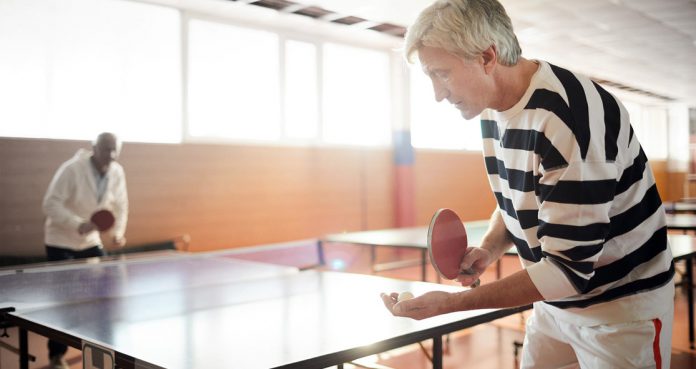A new study, presented at the American Academy of Neurology’s 72nd Annual Meeting in Toronto, Canada, has found that table tennis, or ping-pong, could be an effective form of physical therapy for those suffer from Parkinson’s disease.
Parkinson’s, one of the most common neurological conditions, is a disorder characterized poor secretion of a brain chemical called dopamine as the age progresses. This results in symptoms such as tremor, sluggish movements, difficulty in walking, stiff limbs, impaired posture, poor balance, and speech impairment.
Senior study author Dr. Ken-ichi Inoue from Fukuoka University, Japan, said, “Ping-pong, which is also called table tennis, is a form of aerobic exercise that has been shown in the general population to improve hand-eye coordination, sharpen reflexes, and stimulate the brain.”
“We wanted to examine if people with Parkinson’s disease would see similar benefits that may in turn reduce some of their symptoms,” he added.
The study looked at 12 patients with Parkinson’s who participated in a table tennis exercise program once a week for six months.
The researchers evaluated the symptoms of all the patients after three months and six months.
After three months, the participants experienced significant improvements in their speech, handwriting, walking, and getting dressed or out of the bed.
After six months, the researchers found that all of the participants experienced significant improvements in most of the symptoms, including posture, facial expressions, rigidity, tremors, and sluggish movements.
However, one patient developed back pain and another patient fell down while playing table tennis.
“While this study is small, the results are encouraging because they show ping-pong, a relatively inexpensive form of therapy, may improve some symptoms of Parkinson’s disease,” said Dr. Inoue. “A much larger study is now being planned to confirm these findings.”
There were a few limitations of the study, such as the patients were not compared to people with Parkinson’s who did not play table tennis. Another limitation was that the participants were assessed by a single specialist.




















